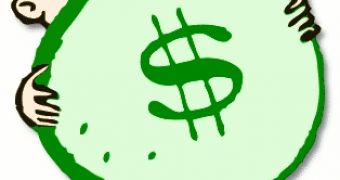Smoking, not getting enough exercise, excessive consumption of alcohol, taking drugs, overeating and many other habitual behaviors that have disastrous consequences in the long run can be successfully altered and corrected with the help of financial incentives. A new study, published on BMJ, comes to show that short-term motivation can help people kick addictions and, thus, induce healthier behaviors.
Discentives (such as tobacco and alcohol taxes) are known to alter consumer behavior in the sense that having to pay a higher price for a certain product often “talks” people out of buying it. However, the way financial incentives (in the form of food vouchers, gym subscriptions and prizes in cash) actually work has never been precisely established, which is the purpose of the latest study.
According to the aforementioned online medical publication, Theresa M Marteau, professor of health psychology, Richard E Ashcroft, professor of bioethics, and Adam Oliver, RCUK senior academic fellow in health economics and policy have determined that, “Personal financial incentives are increasingly being used to motivate patients and general populations to change their behavior, most often as part of schemes aimed at reducing rates of obesity, smoking, and other addictive behaviors.”
Moreover, these incentives work in the short term, that is, they help one change a behavioral pattern with positive health implications in the long run. Rewarding someone for quitting smoking or giving up junk food and taking up exercise seems to be the ideal way to push them into the right direction, on the path to a healthier and ultimately happier life – if it weren’t for the moral and unintended implications of such “rewards.”
As the authors point out, financial incentives come with downsides because they affect (intrinsic) motivation, personal choice, as well as alter the doctor-patient relationship. Whether these incentives can’t also be considered bribery is also an issue that is still up for debate, as is what happens with one’s will and determination when they stop coming.
“Even when incentives change behavior, their use in health contexts has attracted criticism. Some of the most vociferous criticism by professionals has focused on the offer of payment to patients for adherence to antipsychotic drugs, with healthcare professionals viewing such schemes as undermining of patients’ autonomy and personal responsibility, as well as damaging the trust inherent in the doctor-patient relationship. Similar views are evident in public attitudes towards the use of incentives in other healthcare contexts. Their use has often been construed as a form of bribery and coercion.” BMJ writes, citing the authors.
Nevertheless, as we also pointed out in the past, extrinsic motivation can come from all places. For instance, instead of receiving money, people can offer to pay certain amounts (to charitable organizations mostly) in case they fail to kick a habit or change something about their current lifestyle, with countless websites of the type being set up to motivate people into making a difference.

 14 DAY TRIAL //
14 DAY TRIAL //